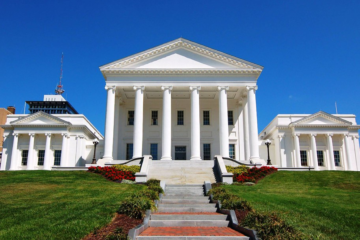President Donald Trump’s nominee for the role of Drug Enforcement Administration (DEA) administrator, Terrance Cole, has declined to specify his stance on the rescheduling of marijuana. This follows a series of questions posed to him by Senators Cory Booker and Alex Padilla during his confirmation hearing. The senators were eager to understand Cole’s position, especially on the topic of cannabis’ reclassification from a Schedule I substance to Schedule III. This is a move that has gained traction under the Biden administration, but Cole’s responses have left much to be desired in terms of clarity.
In written responses to the senators’ inquiries, Cole was noticeably non-committal. He carefully avoided making any firm statements on marijuana policy and how he would handle enforcement in states where cannabis has been legalised. The nominee’s reluctance to delve into specifics surrounding this issue has sparked concern among marijuana reform advocates.
A Close Look at the Rescheduling Proposal
One of the central topics raised by Senators Booker and Padilla during the confirmation process was the ongoing proposal to reschedule marijuana. Under the Biden administration, there has been a push to move cannabis from its current designation as a Schedule I controlled substance to Schedule III. A Schedule I classification means the drug is considered to have a high potential for abuse and no accepted medical use, placing it in the most restrictive category under federal law.
Marijuana’s current classification has long been a point of contention, especially as more states continue to legalise it for both medical and recreational purposes. A rescheduling to Schedule III would be a significant shift, making it easier for researchers to study cannabis and opening the door for it to be prescribed by healthcare providers in states where it is legal.
However, in his responses to the senators, Cole made it clear that he would not take a stance on the matter until he had thoroughly reviewed all the information at hand. “If confirmed,” he wrote, “I will give the matter careful consideration after consulting with appropriate personnel within the Drug Enforcement Administration, familiarizing myself with the current status of the regulatory process, and reviewing all relevant information.” This vagueness raised questions about whether Cole would be open to supporting the rescheduling efforts or continue with the more stringent enforcement policies seen under previous administrations.

Cole’s Past Stance on Marijuana and Youth Suicide
Compounding the ambiguity of his written answers is Cole’s past commentary on marijuana. The nominee has been an outspoken critic of the drug, particularly in relation to its impact on young people. In prior statements, Cole has linked cannabis use to higher suicide risks among youth, a view that aligns with the more traditional, conservative approach to marijuana enforcement.
This background has raised alarm among cannabis reform advocates, who worry that Cole’s appointment might signal a hardening stance on marijuana. With states across the country increasingly legalising cannabis, both medically and recreationally, the federal government’s stance remains a point of friction. Advocates are particularly concerned that a DEA leader with Cole’s views could undermine efforts to reduce federal penalties or ease restrictions on cannabis use.
Yet, Cole’s written responses leave open the possibility that, if confirmed, he would take a more measured approach after consulting with experts within the DEA. But for now, his lack of clarity on how he would handle such a significant policy change has left many in the cannabis community on edge.
The Strain Between State and Federal Cannabis Laws
As more states move to legalise marijuana, the gap between state and federal law has become a point of tension. With cannabis still classified as a Schedule I substance, it remains illegal at the federal level, even in states where it is fully legal. This dissonance has led to a number of challenges, particularly for businesses operating in the cannabis industry, who often face difficulties accessing banking services or dealing with conflicting regulations.
This issue has been one of the central points of advocacy for many marijuana reform groups, who argue that the federal government must update its cannabis policies to reflect the changing landscape at the state level. The proposal to reschedule marijuana from Schedule I to Schedule III has been one avenue through which these groups have hoped to address this disparity.
However, without clear support from key figures like Cole, it remains uncertain whether any real progress will be made on this front. If Cole, confirmed as the head of the DEA, maintains a cautious approach or aligns with those who want to keep marijuana heavily restricted, it could delay efforts to bridge the gap between state and federal cannabis laws.
What’s Next for Cannabis Reform?
As Cole’s confirmation hearing continues, all eyes will be on how he navigates the issue of marijuana policy. For now, reform advocates are left with more questions than answers. While some may hold out hope that Cole will ultimately come around on rescheduling, others fear that his appointment could signal a return to the tough enforcement practices that have characterised past administrations.
Ultimately, the future of cannabis reform may hinge on how policymakers like Cole approach this issue. If confirmed, his leadership at the DEA could play a crucial role in determining how federal law interacts with state-level cannabis legalisation efforts moving forward.



